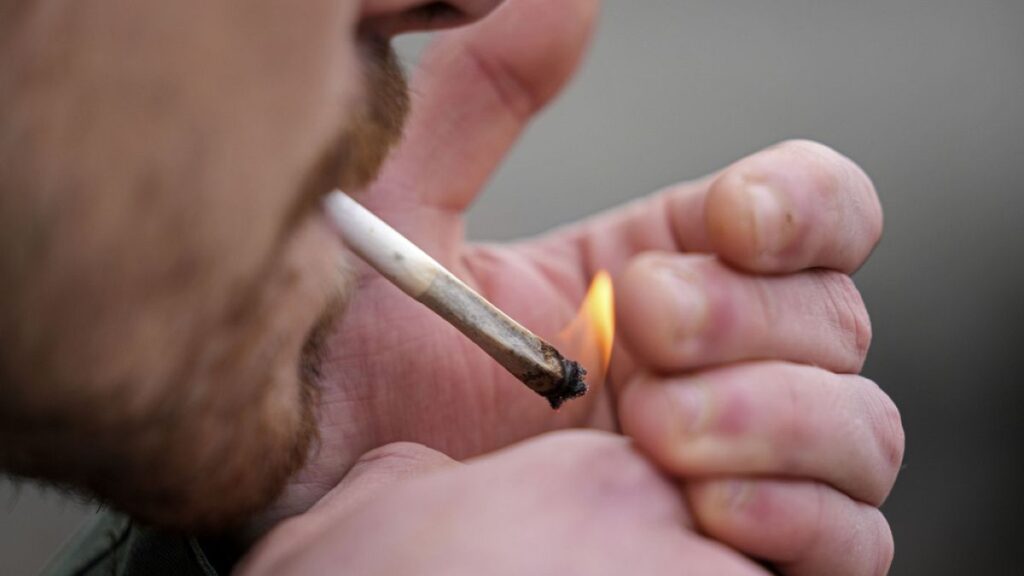Germany has relaxed its laws on cannabis possession and cultivation, but is “cannabis tourism” on the horizon?
advertisement
Germany has long been known as one of the most conservative countries in Europe, but that perception may be changing.
This week, the country became the largest EU country to legalise recreational cannabis, despite fierce opposition from politicians and various medical organisations.
People over the age of 18 are now allowed to possess 25 grams of dried cannabis and grow up to three marijuana plants at home.
The change puts Germany among the countries with the most liberal cannabis laws in Europe, along with Malta and Luxembourg, which legalized recreational use in 2021 and 2023, respectively.
In Europe, the Netherlands is famous for its seemingly tolerant attitude towards cannabis, but it has recently taken a tougher stance against cannabis tourism. Anyone wanting to travel to consume cannabis may not have it easy in the Netherlands, or even in neighboring Germany.
How will the change in law affect cannabis use in Germany?
Despite changes to the law, cannabis is not easy to come by in Germany.
Initial plans to sell cannabis in licensed shops were dropped due to EU objections, but officials hope to soon have a pilot scheme in place to test sell the drug in some shops.
The German government hopes legalization will curb the growth of the drug’s black market.
The next step in the legal reforms will see cannabis being made available through so-called “cannabis clubs” from July 1.
Regulated associations will be allowed to have up to 500 members each, who can purchase up to 50 grams of cannabis per person per month. It is not yet clear whether foreigners and tourists can become members.
Some health groups have expressed concern that legalization could lead to increased use among young people, who in some cases could face serious health risks, but the government has a solution.
They have promised to carry out an extensive information campaign to raise awareness of the potential negative effects, and also stress that cannabis will remain prohibited for under-18s and within 100 metres of schools, kindergartens and playgrounds.
The law has also drawn criticism from police, who have publicly said they fear increased clashes with citizens under the influence of alcohol or drugs.
They worry enforcement will be difficult, suggesting Germany is unlikely to become a “cannabis tourism” hotspot anytime soon.
What are the top destinations for “marijuana tourism” in Europe?
In fact, cannabis is legal in many European countries, but in most cases it is only available for medical or personal use, which means that in most countries it is not easily available for tourists to purchase.
However, the situation is quite different in Malta: the island nation currently has some of the most permissive laws in the entire EU regarding the cultivation, consumption and possession of cannabis.
Since the law was passed in 2021, adults can possess up to seven grams of cannabis and are allowed to grow up to four plants at home.
Smoking marijuana in public remains banned, but Malta’s streets are lined with shops selling marijuana joints, edibles and related products.
advertisement
Although the Netherlands is often perceived as marijuana-friendly, in reality it is illegal to grow, sell or possess the drug.
Officially, its sale is “tolerated” in the country’s well-known “coffee shops” and possession of less than five grams of cannabis is decriminalized.
Similarly, in Spain, personal use of cannabis is decriminalized. While regulations tend to vary from municipality to municipality, cannabis social clubs are extremely popular, with over 1,000 in operation, including in tourist destinations like Barcelona. Though there are occasional crackdowns, most law enforcement agencies turn a blind eye to clubs known for pushing the limits of Spain’s decriminalization laws.
Most other European countries still impose fines and other penalties for using or possessing even small amounts of the drug.
But more liberal countries will be watching closely to see how Germany’s new law plays out, particularly Belgium, where since 2003 the possession of up to three grams of cannabis or the cultivation of one plant by individuals over the age of 18 has been considered a “low prosecution priority.”
advertisement
Last year, Deputy Prime Minister Pierre-Yves Delmagne told Flemish news newspaper De Morgen that the country “should consider legalising cannabis”, suggesting Belgium could be one of the countries moving towards legalisation sooner rather than later.


